As with any adventure sport, getting into mountain biking can be an exhilarating journey, but a pricey one at the same time. Whether you're a beginner mountain biker or an experienced rider, it's important to invest in a good bike because it will ultimately hold up longer and handle better on the trails.
But just because it's important to buy a good mountain bike doesn't mean it has to empty your wallet. These 10 models — all priced under a grand — are among the most affordable bikes worth springing for if you're looking to hit the trails. Whether you're a newb just starting out or a seasoned trail rider, these are the best mountain bikes under $1,000.



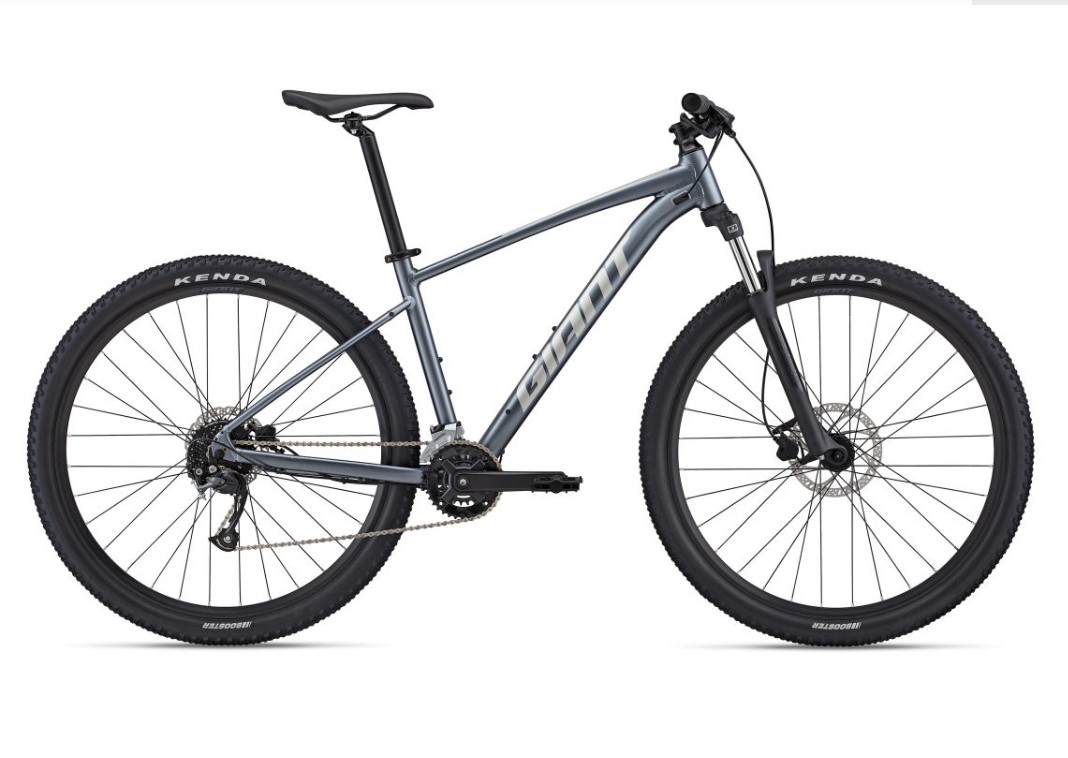




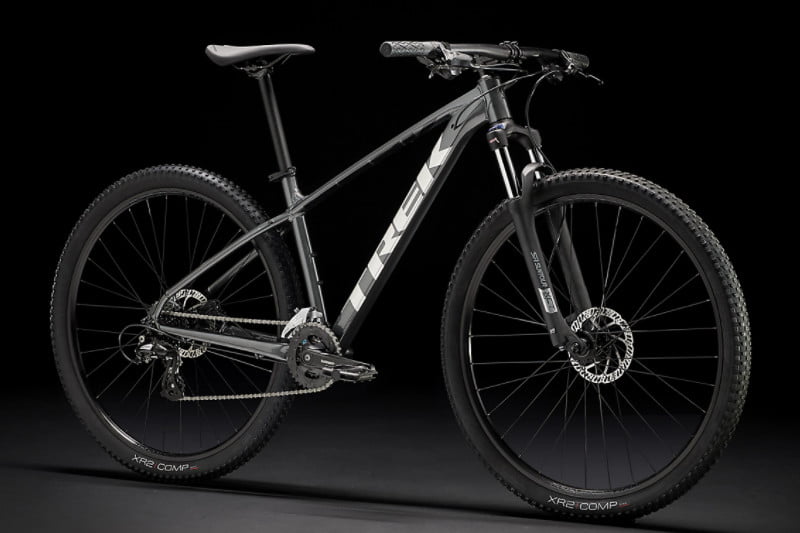
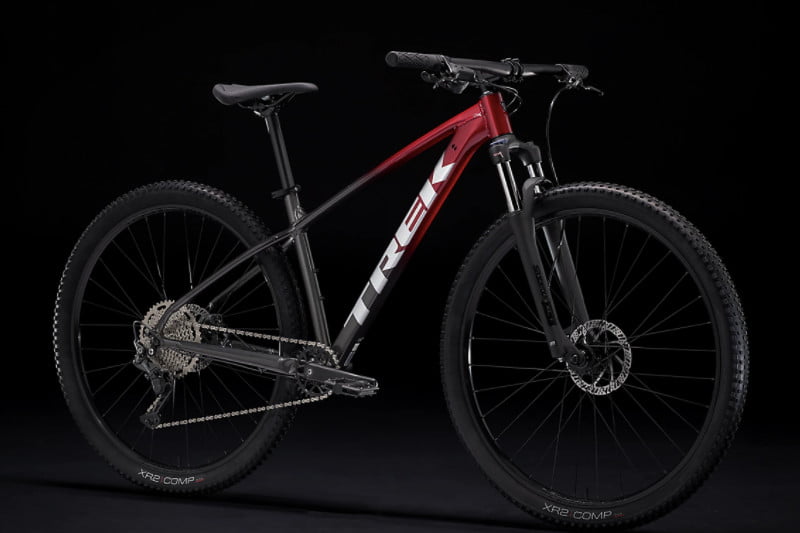
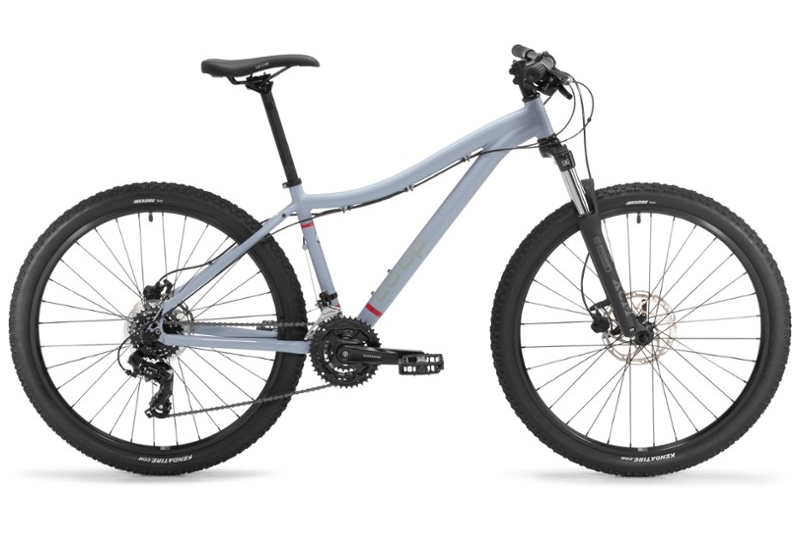
Co-op Cycles DRT 1.1 Bike
REI's Co-op Cycles DRT 1.1 Bike is a solid trail mountain bike to start out with and is very competitively priced. The aluminum frame is lightweight yet durable, and all of its components are high-quality. The tires are on the smaller side at 27.5 inches. But the 21 available gears and SR Suntour front suspension system combine for a smooth, even ride on just about any rough terrain.
The only drawback is that some assembly is required upon receiving the bike if you opt to have it shipped. Still, this is easily one of the best value mountain bikes under $1,000 on the market right now.

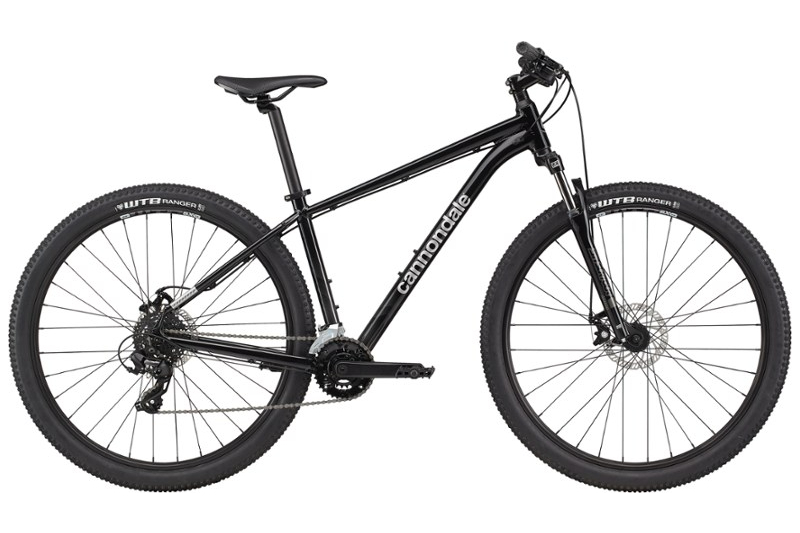
Cannondale Trail 8
Cannondale's Trail 8 Bike is available at a price similar to the REI DRT 1.1. With many similar advantages, such as an aluminum frame and similar tire sizes, though larger sizes of the bike feature 29-inch tires, this mountain-ready bike is quite competitive. Many of the components come from the same vendors, guaranteeing a great build.
The only ways in which the REI Co-op bike wins out is that the Cannondale has slimmer tires that are less suited to gravel and less travel in the suspension system. The fork is just 75 mm compared to the Co-op bike's 100 mm. So if you take major drops, the ride might not be as smooth. But, with a sub-$500 sale price, this is another incredible value mountain bike, especially one branded with the legendary Cannondale name.

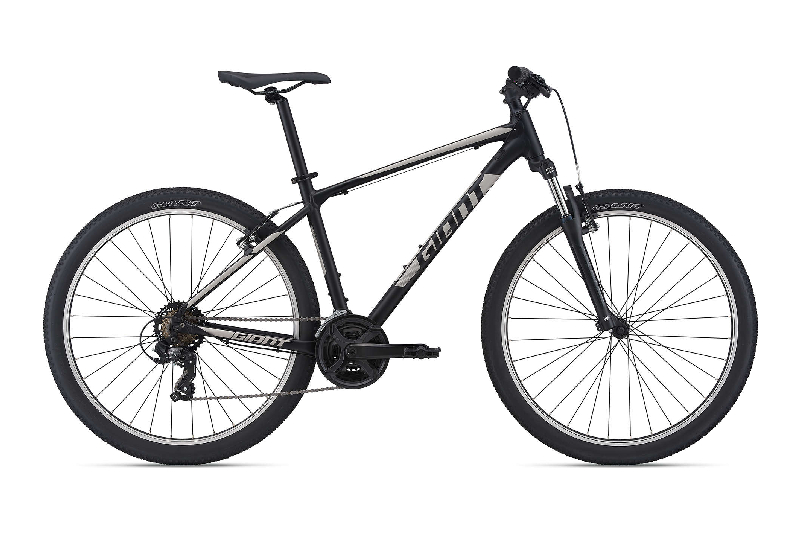
Giant 2021 ATX
The Giant 2021 ATX mountain bike is ideal for those looking dip their toe in the off-road waters. The mountain bike-style ride is equipped with an aluminum frame and 26-inch to 27.5-inch tires, depending on your bike size.
This two-wheeler is great as a commuter though its suspension fork allows you to venture onto light off-road rides on gravel, dirt paths, or easy trails, too. Integrated mounts for racks and fenders also mean you can customize it to suit your needs with additional safety and cargo options.

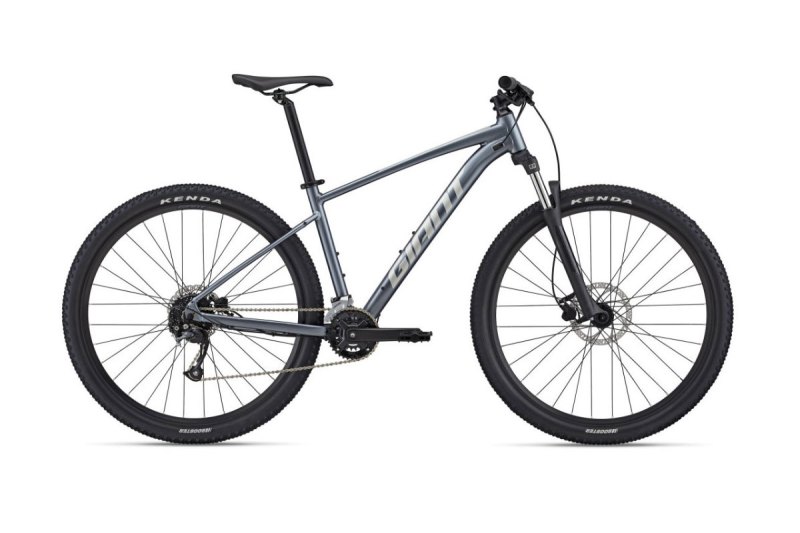
Giant Talon 2 (2022)
Another solid option in Giant's lineup of just-right bikes, the latest Talon 2 (2022) is a good choice for intermediate riders and beginners looking to "level up." With an aluminum alloy frameset that rolls on either 27.5- or 29-inch tires, it provides a ride that balances comfort and liveliness.
The suspension fork offers between 80-100 mm of travel, depending on the size you choose, allowing you to dial in your preferred ride style. The best part? At a little over $700 (including professional assembly), it's an extremely high-quality bike at a very reasonable price point.

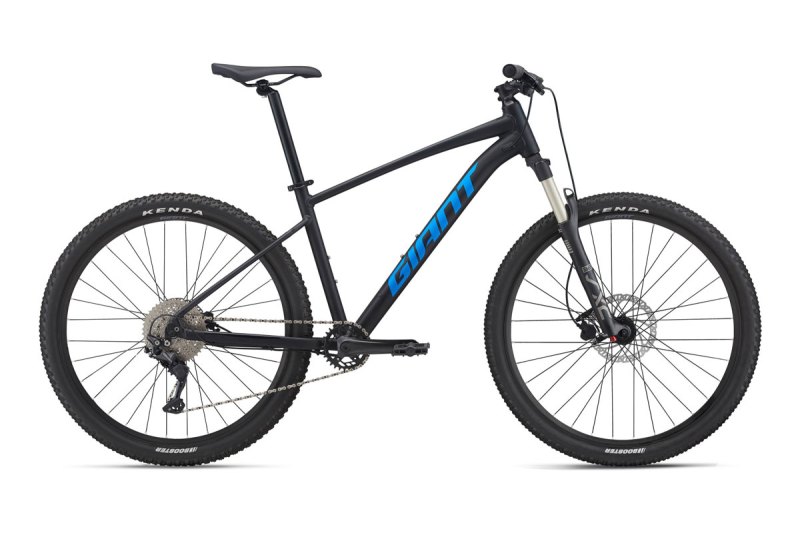
Giant Talon 1 (2022)
This "big brother" to the Talon 2 (2022) is the flagship mountain bike in Giant's latest Talon lineup. It offers many of the same specs, including 27.5 to 29-inch wheels and a plush suspension with up to 100 mm of travel.
But it adds premium features like caged pedals, a better fork, wider, 2.4-inch tires, and a seriously upgraded drivetrain that more experienced riders will appreciate. At around $900, this might be this year's single best mountain bike under $1,000.

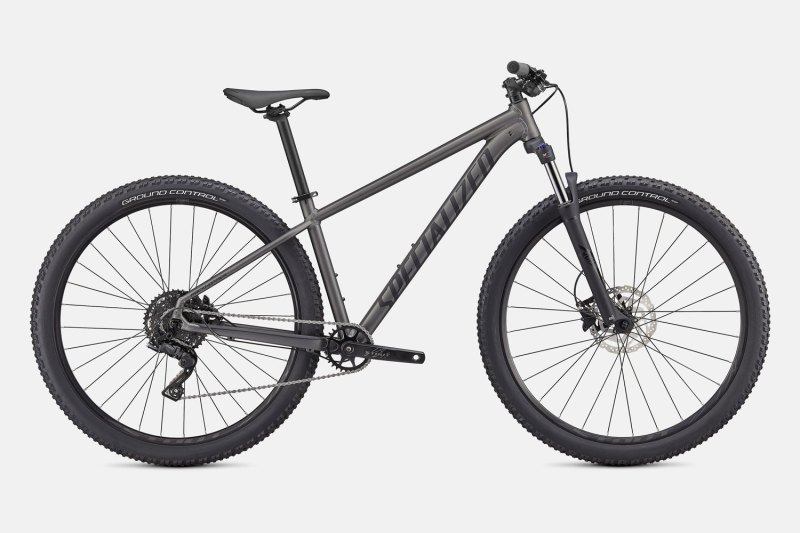
Specialized Rockhopper Comp
At exactly a grand, technically Specialized's Rockhopper Comp doesn't qualify as a sub-$1,000 mountain bike, but hear us out: It has everything you want in a dream mountain bike and nothing you don't. From the premium A1 aluminum frame to the SR SunTour XCM fork, this is a bike built for screaming down singletracks.
Outfitted with Shimano hydraulic brakes and a MicroSHIFT 1x9 drivetrain, this bike will handle beautifully and give you everything you need to conquer steep climbs while confidently tackling steep descents. Plus, it's pretty damn handsome to boot.

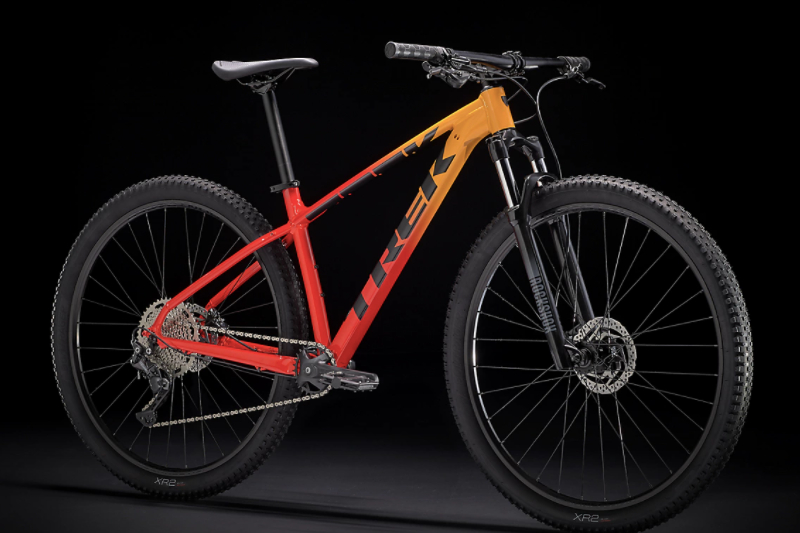
Trek Marlin 7 (Gen 2)
The final mountain bike in Trek's Marlin lineup of picks is the Marlin 7 (Gen 2) and is perfect for more advanced mountain bikers. It's a powerful bike for those who are still learning the ropes though, too.
The latest-gen Marlin 7 is designed to keep up with high-end racing bikes, thanks to additionally upgraded components and a RockShox suspension fork. The wide range of gears enables you to keep up whether you're hitting big trails or major cross-country rides or races. If, on the off-chance, you just can't let go of this bike to swap to a commuter, it's also outfitted with a rear rack so you can take it (and your belongings) anywhere you go.

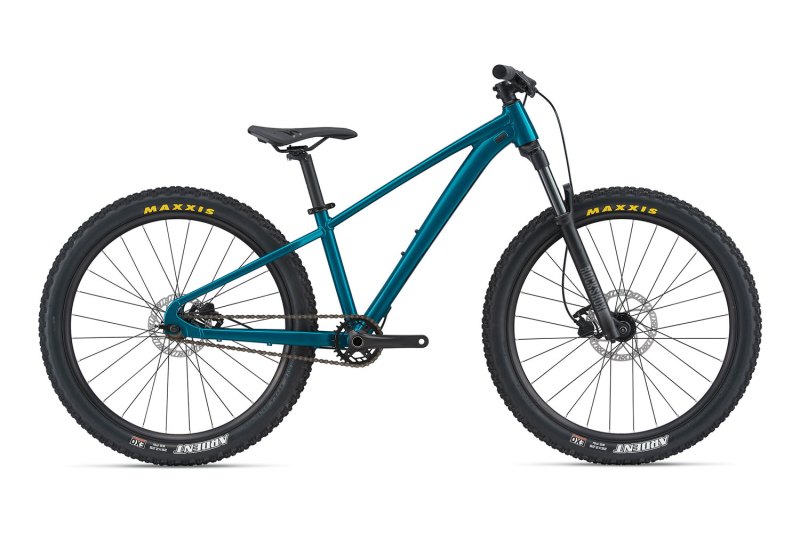
Giant STP 26 SS (2021)
The Giant STP 26 SS is a great mountain bike for catching some air, be it on pavement or dirt. It tackles both with aplomb. The lightweight aluminum frame is durable and handles well thanks to the 26-inch wheels that are incredibly responsive. With a top-notch, 120 mm suspension fork and 14t cassette, you can ride confidently anywhere you go. This one is technically on the other side $1,000, but it's just above it, and who's counting?

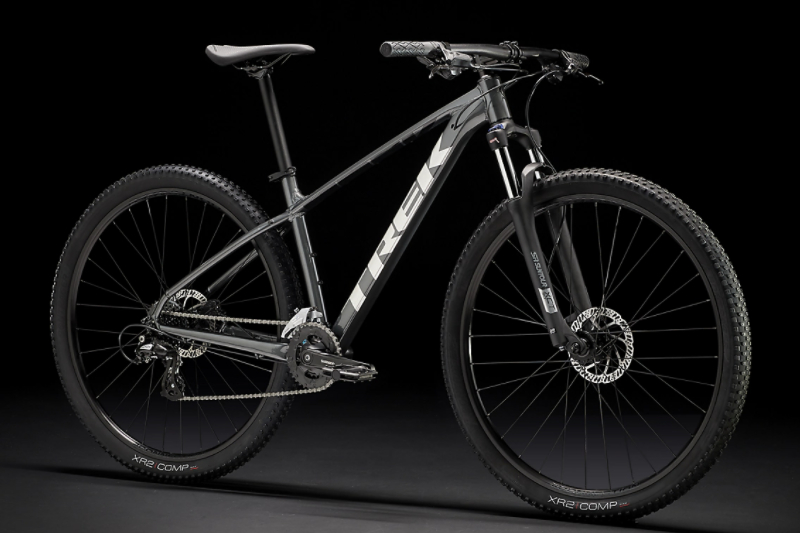
Trek Marlin 5 (Gen 2)
The latest generation Trek Marlin 5 is an exceptional value because it's a do-it-all two-wheeler — a mountain bike perfect for anyone who wants a versatile ride that can also handle light to moderate trails. It's built with an aluminum frame, a suspension fork for a smooth ride, and a 2x8 drivetrain.
Though it's at home on the trails, the Marlin 5 also comes with a kickstand mount and a rack mount so you can use it as a good commuter bike for transporting light cargo, too. At this price point, it's a hard entry-level bike to pass up.

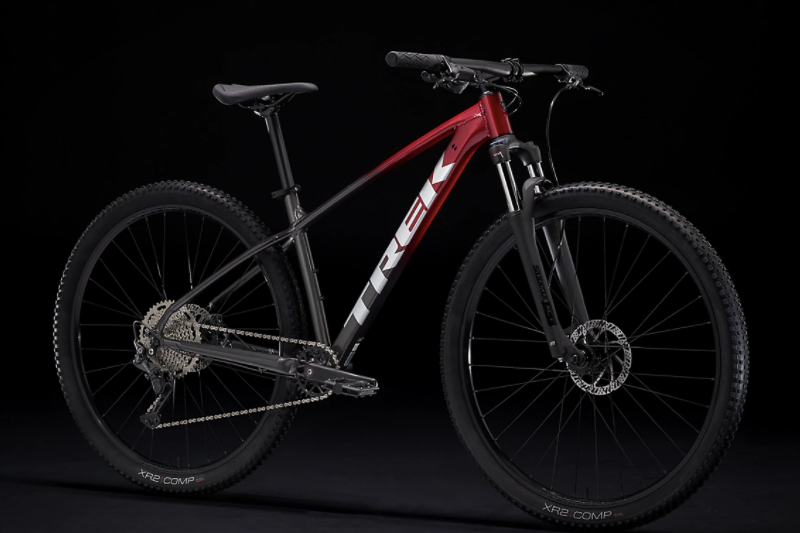
Trek Marlin 6 (Gen 2)
Another great option in Trek's second-generation Marlin lineup, the mid-range Marlin 6 (Gen 2) mountain bike has the upgrades you need to take on more serious trails, even if you are mostly using it to commute.
The Marlin 6 has thicker rims, upgraded disc brakes, and a few more gears, thanks to the beefier 11x46 cassette. That means you'll be able to tackle climbs and fly down the descents more easily. The suspension fork helps smooth out the ride, too, even if it's just for taking groceries home, thanks to the kickstand and rack mounts.

Frequently Asked Questions
When purchasing a mountain bike, it's important that you consider the weight, which comes into account with your riding style, terrain, and goals.
For example, when you're climbing, a lighter bike is generally easier to get up hills with, as you need to exert less energy to overcome gravity. A lighter mountain bike also accelerates faster, making it advantageous for quick bursts of speed and technical sections. On the other hand, while weight can affect handling slightly, it's less crucial downhill. A heavier bike can even offer some stability on rough terrain.
Regarding your riding style – if you prioritize climbing and technical riding, a lighter mountain bike might be more beneficial. For downhill and enduro, weight becomes less critical, and other factors like suspension travel and frame geometry take precedence. If you ride flat or rolling terrain, weight is less of a concern. However, for hilly or mountainous areas, a lighter bike can significantly improve your riding experience.
Like almost any outdoor adventure sport — recreational scuba diving and alpine trekking come to mind — mountain biking can be an expensive hobby. Decent mountain bikes vary widely in price, from around $500 up to as much as a used Toyota Corolla for a high-end carbon fiber model. That doesn't even include all the fancy gear and accessories you'll no doubt be shopping for, too. But, if you know where to look and potentially cut corners (especially if you're a newbie rider), it is possible to score a solid mountain bike for under $1,000.



